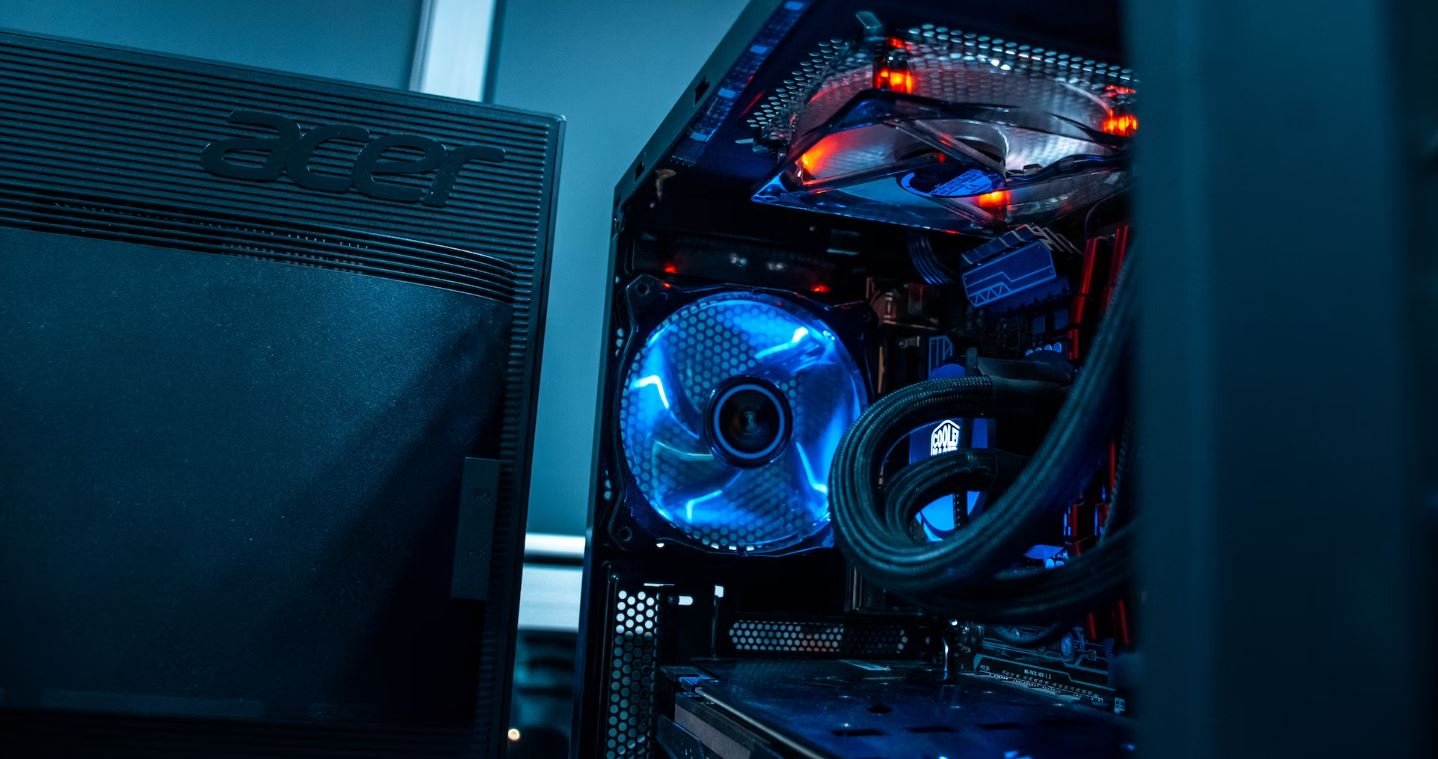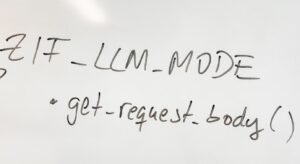AI Applications for HR
Artificial Intelligence (AI) has been transforming various industries, and Human Resources (HR) is no exception. AI applications are revolutionizing the way HR departments operate, from recruiting and hiring to employee engagement and performance management. This technology-driven approach helps HR professionals streamline processes, make data-driven decisions, and improve overall efficiency. Let’s explore some key applications of AI in HR.
Key Takeaways
- AI is transforming HR processes and improving efficiency.
- AI is used for recruiting, employee engagement, and performance management.
- Chatbots and AI-powered tools enhance candidate and employee experience.
- AI can analyze large volumes of data to provide valuable insights.
- Implementing AI requires careful consideration of ethical and legal considerations.
Recruiting and Hiring
AI has revolutionized the way organizations find and hire talent. With AI-powered resume screening and applicant tracking systems (ATS), HR professionals can efficiently sift through a large number of resumes and identify the candidates best suited for the job. These tools can analyze keywords, work experience, educational background, and qualifications to shortlist candidates, saving significant time and effort in the hiring process.
A key advantage of AI in recruiting is its ability to improve the efficiency of resume screening and candidate selection.
Employee Engagement
AI can play a crucial role in improving employee engagement and satisfaction. Chatbots powered by AI algorithms can provide personalized assistance to employees, answering frequently asked questions, providing information about company policies, or helping with administrative tasks. Virtual assistants can also aid in onboarding new employees, ensuring a smooth transition and reducing the administrative burden on HR teams.
AI-powered chatbots provide personalized assistance and support to employees, enhancing their engagement and experience.
Performance Management
AI can significantly enhance performance management processes by automating data collection, analysis, and feedback. AI-powered systems can track employee performance, gather feedback from multiple sources, and provide real-time insights to managers. These systems can identify patterns and trends, helping organizations make data-driven decisions about promotions, training needs, and performance evaluations.
AI in performance management enables real-time insights and data-driven decision-making, improving overall performance evaluation.
Data Analysis and Insights
AI can analyze vast amounts of HR data to extract valuable insights that can drive strategic decision-making. Through machine learning algorithms, AI can identify patterns, correlations, and trends that might not be immediately apparent to human analysts. These insights can help HR professionals identify areas for improvement, address potential issues, and optimize processes.
With AI’s data analysis capabilities, HR professionals can gain valuable insights and improve decision-making.
Ethical and Legal Considerations
While AI offers numerous benefits to HR, it also raises ethical and legal considerations. HR professionals must be mindful of potential biases in AI algorithms, which can perpetuate discriminatory practices if not properly addressed. It is crucial to ensure transparency, fairness, and accountability when implementing AI in HR processes. Additionally, compliance with data protection and privacy regulations is essential to safeguard employee information and maintain trust.
Addressing ethical and legal considerations is vital to ensure fairness and maintain trust in AI-driven HR processes.
Tables
| Benefits | Description |
|---|---|
| Improved Efficiency | AI automates tasks, saving time and effort for HR professionals. |
| Enhanced Candidate Experience | AI-powered tools provide personalized interactions, improving the candidate experience. |
| Better Decision-Making | AI analyzes data to provide valuable insights, enabling data-driven decision-making. |
| HR Processes | AI Applications |
|---|---|
| Recruiting and Hiring | Resume screening, applicant tracking systems. |
| Employee Engagement | Chatbots, virtual assistants. |
| Performance Management | Data analysis, feedback systems. |
| Considerations | Actions |
|---|---|
| Bias in Algorithms | Regularly audit and update algorithms to minimize biases. |
| Transparency | Ensure clear communication about the use of AI in HR processes. |
| Data Protection | Comply with data protection and privacy regulations. |
AI applications in HR are reshaping the way organizations manage their workforce, from recruitment to performance management. With the ability to automate tasks, provide personalized support, analyze data, and improve decision-making, AI offers significant advantages for HR professionals and employees alike. As technology continues to evolve, HR departments can harness the power of AI to drive efficiency, engagement, and success in the workplace.

Common Misconceptions
Misconception 1: AI will replace HR professionals entirely
One common misconception is that AI applications will completely replace HR professionals, making their roles obsolete. However, this is not entirely true. While AI can automate certain tasks and streamline processes, it cannot replace the human element of HR, such as empathy, critical thinking, and decision-making. Moreover, HR professionals are still needed to oversee and manage AI technologies.
- AI can automate administrative tasks, freeing up HR professionals’ time
- HR professionals can focus on more strategic and value-added activities, thanks to AI support
- Human judgment and intuition are still crucial in complex HR situations
Misconception 2: AI in HR is only about recruitment and talent acquisition
Another misconception is that AI applications in HR are only limited to recruitment and talent acquisition processes. While AI can certainly play a significant role in improving these areas, its potential reaches far beyond that. AI can also enhance employee engagement, performance management, learning and development, workforce planning, and more.
- AI can track employee engagement and satisfaction levels, helping identify areas that need improvement
- Performance management tools can leverage AI algorithms to provide valuable insights for performance evaluation
- AI-powered learning platforms can personalize employee training programs based on individual needs
Misconception 3: AI applications in HR are biased and discriminatory
There is a misconception that AI applications in HR are inherently biased and discriminatory. While AI algorithms can be influenced by inherent biases present in the training data or design assumptions, it is important to note that bias is not inherent to AI itself. AI systems can be actively designed and continuously monitored to ensure fairness, objectivity, and inclusivity in decision-making processes.
- Regular audits and evaluations can be conducted to identify and address potential bias in AI models
- Data used for AI training should be diverse and representative of the entire workforce
- Transparency in AI algorithms can help identify and mitigate biases
Misconception 4: Implementing AI applications in HR is expensive and complex
Many believe that implementing AI applications in HR requires significant financial investment and technical expertise, making it complex and unattainable for smaller organizations. While implementing AI may require some initial investment and expertise, there are various AI solutions available today that are more accessible, cost-effective, and tailored to the needs of different organizations.
- Cloud-based AI platforms can reduce infrastructure costs and simplify implementation
- AI solutions can be scaled based on the size and requirements of the organization
- Many AI vendors offer user-friendly interfaces and support for easier adoption
Misconception 5: AI can completely eliminate human bias in HR decision-making
It is a misconception that AI can completely eliminate human bias in HR decision-making processes. While AI can help minimize bias, it is essential to understand that the quality and accuracy of AI algorithms heavily rely on the quality and diversity of the data used. Additionally, biases can be introduced through biased input data or subtle design choices made during the development of AI systems.
- Well-designed AI systems can reduce unconscious biases and provide more objective insights
- Continuous monitoring and evaluation of AI systems can help identify and address biases
- Combining AI with human oversight can help ensure fair and unbiased decision-making

AI Applications for HR
Artificial intelligence (AI) is revolutionizing the way human resources (HR) departments operate, providing valuable insights and streamlining processes. This article highlights ten engaging tables that illustrate various applications of AI in HR, showcasing its effectiveness in different areas.
1. Improving Candidate Screening
In today’s competitive job market, identifying the most suitable candidates efficiently is crucial. With AI-powered resume screening tools, HR departments can reduce manual efforts and enhance productivity by quickly filtering resumes based on the required skills and qualifications.
2. Candidate Sourcing Strategies
AI algorithms leverage big data analysis to identify potential candidates across multiple online platforms. These platforms analyze job descriptions, social media profiles, and other relevant data, making candidate sourcing faster and more accurate.
3. Predictive Analytics for Attrition
By utilizing AI algorithms, HR professionals can effectively predict possible employee attrition. By analyzing historical data and various factors such as employee satisfaction, performance metrics, and compensation, companies can implement proactive measures to reduce turnover.
4. Personalized Learning and Development
AI-powered learning platforms cater to the individual needs of employees, suggesting personalized training programs and development paths based on their skills, performance, and career aspirations. This targeted approach enhances engagement and enhances employee growth.
5. Employee Engagement Monitoring
AI applications can analyze employee engagement surveys, feedback, and internal communication data to provide actionable insights into employee sentiment and engagement levels. HR teams can effectively address concerns and monitor improvements through data-backed interventions.
6. Performance Evaluation and Feedback
AI tools can assist HR professionals in conducting fair and unbiased performance evaluations. These tools analyze various performance-related data points, providing real-time feedback, constructive insights, and objective assessments, contributing to fairer evaluation processes.
7. Efficient Resource Allocation
AI optimization models help HR teams allocate resources effectively by analyzing data such as staffing requirements, project deadlines, and employee skill sets. This ensures that the right resources are allocated to the right projects, improving productivity and reducing downtime.
8. Diversity and Inclusion Analytics
AI algorithms analyze workforce demographics, performance data, and other factors to provide insights on diversity and inclusion initiatives. HR teams can identify gaps and develop strategies to promote diversity, equity, and inclusion within the organization.
9. Employee Well-being and Burnout Prevention
Through sentiment analysis and data tracking, AI applications can identify signs of employee burnout and recommend interventions. Proactive measures can be taken to promote well-being, ensuring a healthy work environment and improving overall employee satisfaction.
10. Succession Planning and Talent Management
A combination of AI and HR data analytics helps identify high-potential employees and create personalized succession plans. This ensures a robust talent pipeline, enabling organizations to fill critical positions strategically and develop future leaders effectively.
The application of AI in HR offers numerous benefits, ranging from automated candidate screening to fostering a diverse and inclusive work environment. By leveraging AI technologies, HR departments can optimize processes, enhance decision-making, and ultimately contribute to the success of organizations.
AI Applications for HR – Frequently Asked Questions
1. What is AI and how is it being used in HR?
AI, or Artificial Intelligence, refers to the simulation of human intelligence in machines. In the HR field, AI technologies are being used to automate processes, improve candidate sourcing and screening, analyze employee data, and enhance employee engagement and productivity.
2. How does AI help in candidate sourcing and screening?
AI can analyze and screen thousands of resumes and applications much faster than humans. It can match candidate profiles with job requirements, identify relevant skills and experiences, and even conduct initial interviews through chatbots. This saves time and helps recruiters find the most suitable candidates.
3. Can AI be used for employee performance analysis?
Yes, AI can analyze employee performance data to identify patterns, trends, and correlations. It can help assess individual and team performance, identify areas for improvement, and provide insights on productivity levels, employee satisfaction, and engagement.
4. What are some common AI tools used in HR?
Common AI tools used in HR include chatbots for candidate engagement and initial screening, predictive analytics for talent management, AI-powered video interviewing platforms, AI-powered resume parsing tools, and natural language processing (NLP) systems for sentiment analysis.
5. How can AI improve employee engagement and productivity?
AI can contribute to employee engagement and productivity by providing personalized learning and development recommendations, generating tailored feedback and performance improvement plans, automating repetitive administrative tasks, and facilitating more efficient communication and collaboration among employees.
6. Are there any ethical concerns with the use of AI in HR?
Yes, there are ethical concerns related to bias in AI algorithms, data privacy and security, and potential job displacement due to automation. It is important to ensure that AI systems are designed and deployed in a fair and transparent manner, and to continuously monitor and mitigate any potential biases.
7. Can AI assist in talent acquisition and retention?
Yes, AI can assist in talent acquisition by analyzing data from various sources to identify high-potential candidates, predict their likelihood of attrition, and develop strategies to attract and retain them. It can also help in improving the candidate experience and streamlining the onboarding process.
8. How is AI used in HR for employee training and development?
AI can be used in HR for employee training and development by providing personalized learning recommendations based on individual needs and preferences. It can also analyze training effectiveness, monitor progress, and provide real-time feedback to enhance learning outcomes.
9. Can AI help in automating HR processes?
Yes, AI can automate several HR processes, such as resume screening, scheduling interviews, onboarding paperwork, benefits administration, and leave management. By automating routine tasks, HR professionals can focus more on strategic initiatives and employee-focused activities.
10. How can organizations prepare for the implementation of AI in HR?
Organizations can prepare for the implementation of AI in HR by assessing their current HR processes and identifying areas where AI can add value. They should also invest in training HR professionals on AI technologies and ensure compliance with data privacy regulations. Pilot projects and collaboration with AI vendors can help organizations gain practical experience and establish best practices.





